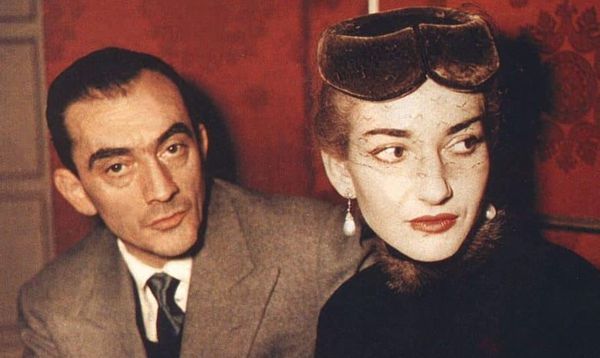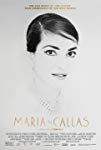Eye For Film >> Movies >> Maria By Callas (2017) Film Review
Maria By Callas
Reviewed by: Anne-Katrin Titze

Maria by Callas is a beautiful film that enchants without relying on duplicity and it might trigger questions such as these: How do you serve music with humility? Who really is Madame Butterfly? What happens when you have no childhood? When Callas speaks in an interview about the fact that she would have liked to have had children and that she feels she was forced into her career, first by her mother and then by her husband, Giovanni Battista Meneghini, centuries of gender expectations fly open and reveal a wound of uncertainty.
As the title suggests, Tom Volf's documentary, a highlight of the 56th New York Film Festival in the Spotlight on Documentary section, lets the famous opera singer speak for herself about her life, her career, her loves as Maria, the woman behind, or within, the star. Often you see the truth in her face, not in her words.

Maria Callas died in 1977, so it is recordings from radio and clips from television interviews, including with David Frost, Edward Murrow, and Barbara Walters, that help us time travel with her, as much as she allows. A sheer endless parade of airport arrivals, dressed to the nines, poodle Toy in tow, makes it easy to drift momentarily into a dreamworld of mid-century notoriety, with Callas's voice hypnotising us into something that never really existed.
Personal letters and unpublished memoirs were voiced by Fanny Ardant when the film came out in France at the end of last year. Here in the Sony Pictures Classics release, scheduled for October 27 in the US, American operatic lyric-coloratura mezzo-soprano Joyce DiDonato has the honour.
Maria by Callas fashionably transports you into the world of a great artist. Jean Cocteau, Brigitte Bardot, Edward and Wallis, the Duke and Duchess of Windsor, are among those seen coming to hear her sing.
The film takes its time; Callas performs entire arias, we hear the applause and we also get a glimpse into what she calls the "saddest evening in her career" when in Rome in 1958, she walked out on a sold-out performance. Headlines, bronchitis, the press in an uproar, a terrified star "swamped with fear" - Volf nimbly does not untangle the drama for us. Nor does his film try to answer exactly why she was fired from The Metropolitan Opera.
There is enough contradictory footage about her infamous relationship with Aristotle Onassis to draw our own conclusions about who was playing whom. "We are great friends," Callas insists more than once and over time. "He made me feel very feminine," she says of Aristo, who blindsided her with his wedding to Jackie Kennedy, which Callas had to first read about in the newspapers.
"You men don't like the truth" she quips in an interview. In 1969 she was making her first film with her good friend Pasolini and she talks about finding "the human parts of Medea."
In 1974 she is being asked in an interview if she were still waiting for Prince Charming and if she'd give up her singing career for him. The public eye, and the mainstream conventions of these stylish decades are just as much exposed in Maria by Callas as is its heroine. When she died of a heart attack in 1977, she was rehearsing to perform again. She was 53 years old. Callas said she hoped to "transport you to another world" with her music. She still does.
Reviewed on: 12 Sep 2018















